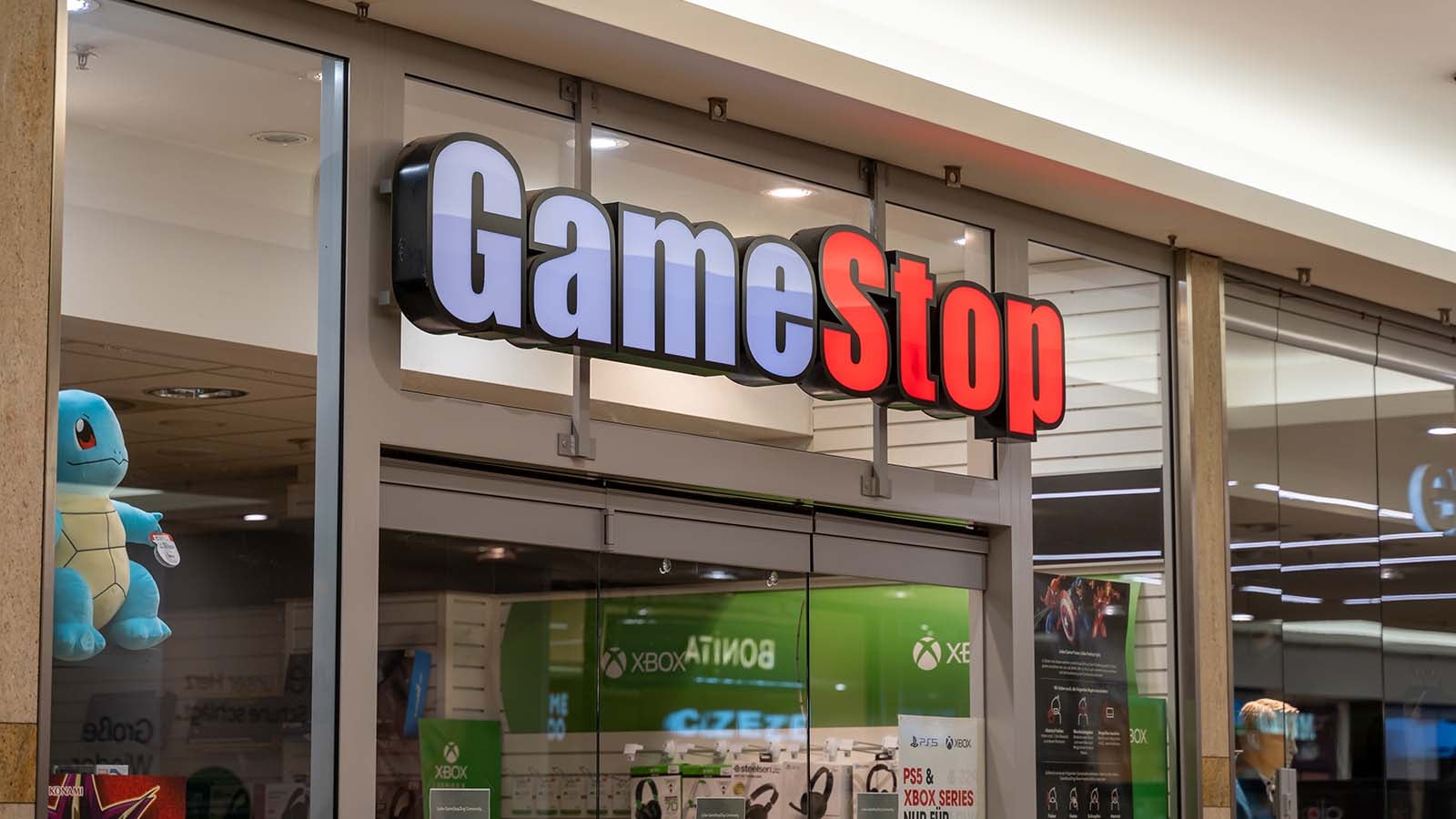
After weeks of teasing and hype on social media, retail investor Keith Gill, aka “Roaring Kitty,” held a livestream event on YouTube to discuss GameStop stock (NYSE:GME). The result? GME shares plunged 40%.
The steep drop in GameStop’s share price is the latest example of how this overhyped meme stock continues to burn investors. It didn’t help that management at GameStop rushed the company’s financial results out hours before Gill held his much-hyped livestream event that attracted 600,000 retail investors.
As is typical, GameStop’s print showed a steady decline in sales and a bleak outlook for the brick-and-mortar video game retailer. The poor financial picture is just one more reason why investors should stay far away from this dangerous stock.
Roaring Kitty ‘Meows’
In May, Keith Gill, a former marketer at MassMutual turned day trader, returned to social media after a three-year hiatus. He posted a series of cryptic images and videos but did not actually say anything. Then, during the first week of June, Gill posted screen shots of his investing account that showed he held five million shares and 120,000 call options on GameStop stock. After the shares crashed 40% on June 7, Gill’s GameStop holdings were worth a little more than $300 million.
Hype surrounding the return of Gill, who led a coordinated short squeeze on GameStop stock back in 2021, reached a fevered pitch when he announced that he would hold a livestream event on YouTube to discuss GameStop. After showing up a half hour late, Gill ended up saying nothing much at all about GME stock. Other than sharing his position in the company and stating that he believes in management’s turnaround strategy, Gill’s livestream was uneventful, contributing to the dive in GameStop’s share price.
Poor Financial Health
Hours before Gill’s YouTube livestream, GameStop unexpectedly dropped its first-quarter financial results and announced plans to sell more stock, further diluting the holdings of existing shareholders.
The retailer’s print showed that it lost $32.3 million during Q1. Sales in the first three months of the year totaled $881.8 million, down 29% from $1.23 billion a year earlier.
Along with its Q1 print, GameStop provided an update on its stock sale, saying it plans to continue raising cash by selling an additional 75 million shares on top of the 45 million it sold in May that raised more than $900 million.
The company was expected to release its financial results later in June, but suddenly dropped the print premarket on June 7 to capitalize on investor excitement surrounding Gill’s livestream.
The earnings release plan backfired just as Gill’s YouTube event did. After spiking more than 180% following Gill’s return to social media, GameStop stock has quickly fallen back to earth.
Now, both the U.S. Securities and Exchange Commission and market regulator in Massachusetts where Gill lives have announced that they are investigating Roaring Kitty for possible market manipulation.
Sell GME Stock
Other than Keith Gill and possibly insiders who work at GameStop, is anyone making money off GME stock? The company’s business is in free fall, with each earnings report worse than the previous one.
GameStop is selling video games on discs in age of digital downloads. Its retail store network is outdated and crumbling.
On a fundamental basis, there’s no reason to own the stock. Investors who buy the social media hype and push the share price temporarily higher are only enriching Keith Gill. Don’t be fooled. GameStop stock is not a buy.
On the date of publication, Joel Baglole did not have (either directly or indirectly) any positions in the securities mentioned in this article. The opinions expressed in this article are those of the writer, subject to the InvestorPlace.com Publishing Guidelines.





